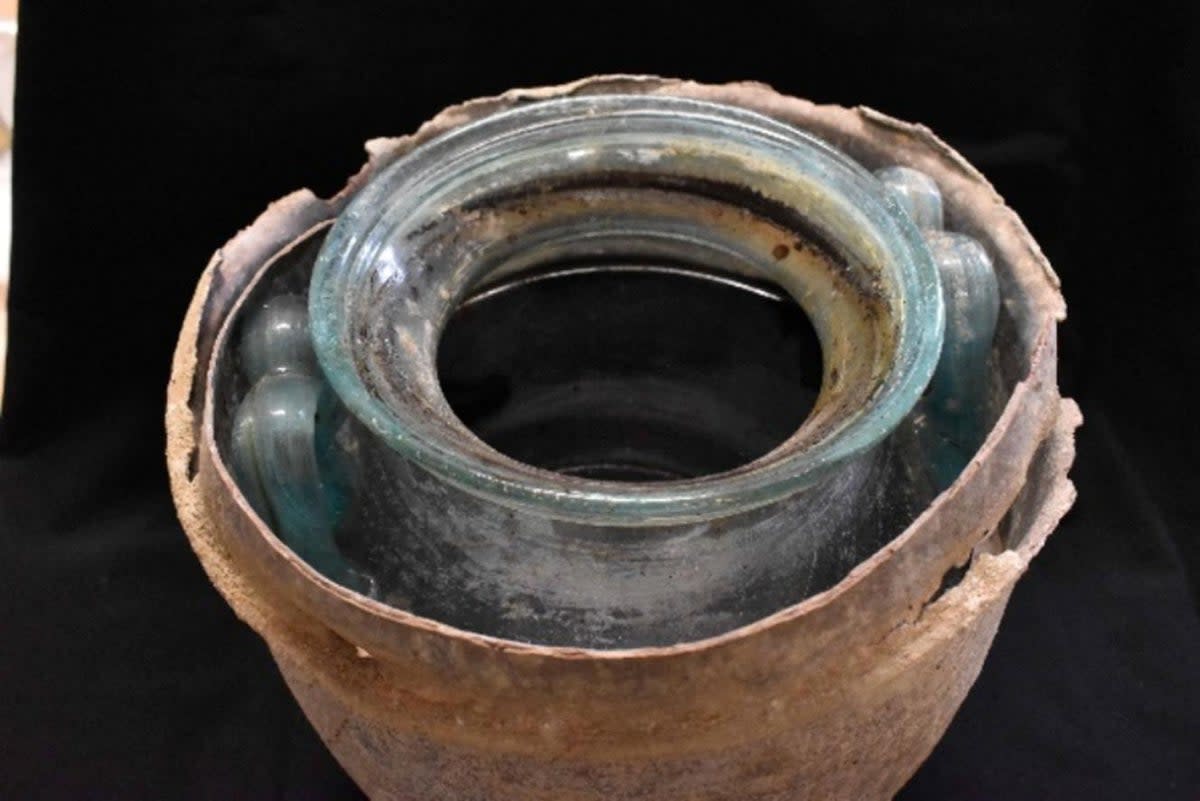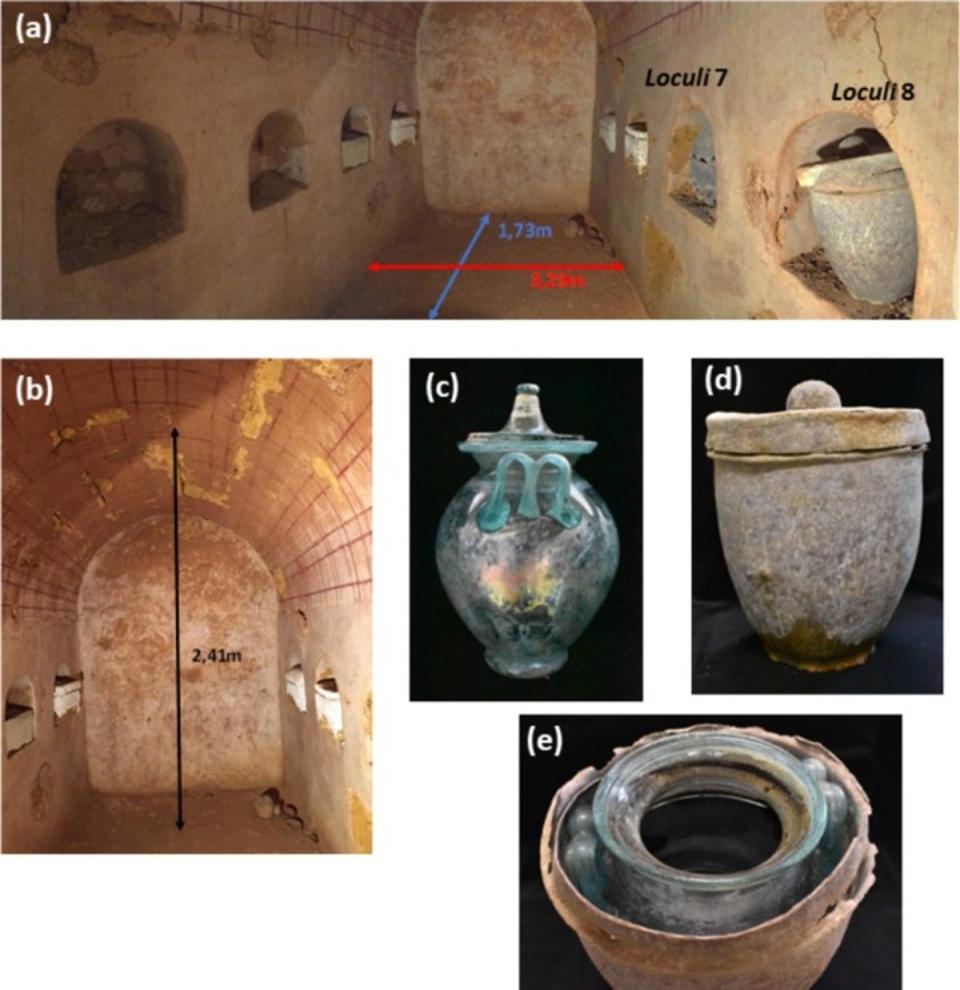Scientists discover world's oldest wine – and it contains a man's ashes

A 2,000-year-old wine containing a man's ashes has been discovered in what was once a Roman burial site in Spain.
On June 18, researchers at the University of Córdoba said they found what is the world's oldest known wine in a liquid state inside a funeral urn in Carmona, a town in southwestern Spain.
In a press release from the university, scientists said that cremated "skeletal remains of one of the men were submerged in a liquid inside a glass funerary urn”, and the wine was likely used "as part of that [burial] ritual”.
The Roman tomb was discovered in 2019, when a family accidentally found the site while having their home redecorated.
Juan Manuel Román, the municipal archaeologist of the Carmona City Council, explained that they "were very surprised that liquid was preserved in one of the funerary urns" for so long.
Scientists said that "given the religious significance of wine in the ancient Roman world, where it was highly symbolic and closely related to burial rituals, it is unsurprising to find vessels that might have originally contained wines among burial furnishings."
However, usually the liquid has evaporated.

Scientists also found, through chemical testing, that the urn contained white wine that had turned reddish-brown over the years.
The wine had reportedly been inside the tomb since around the first century, and the tomb was well-sealed, allowing the wine "to maintain its natural state”.
The tomb was "a circular mausoleum that probably housed a [high-power] family", according to the university, and contained other trinkets such as jewels, silk fabric, and a patchouli-scented perfume.
These items were essentials "that would accompany the deceased on their journey to the afterlife”.
The university also noted that it was not a coincidence that the urn contained a man's remains as "women in ancient Rome were prohibited from tasting wine”.
"The urn containing the remains of a woman did not have a single drop of wine in it," researchers explained. "The two glass urns in Carmona's tomb are an example of the gender division of Roman society and funerary rituals."
Before the discovery of the Roman wine in Spain, scientists thought the oldest wine in the world was from a bottle found in another Roman tomb in Speyer, Germany. The wine was discovered in 1867 and was thought to date back to the fourth century.

 Yahoo News
Yahoo News 
